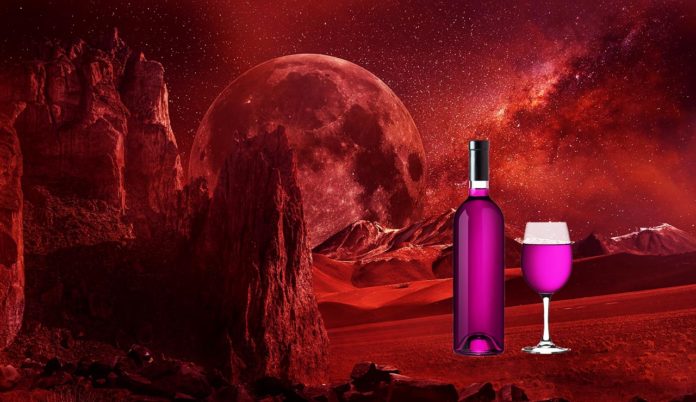
Industries and countries are gearing up to make their marks on Mars. This includes real estate, space tech, and… wine on Mars? As a country that has an 8,000-year-old viticulture tradition, Georgia wants to figure out how to grow grapes on Mars.
Will Georgia Grow Wine on Mars?
The Georgian project is IX Millennium, as it is Georgia’s ninth millennium of winemaking. According to the founder of Georgia’s Space Research Agency, the Mars colonization requires Georgia to contribute. Many believe that Georgia’s ancestors brought wine to Earth; a recent discovery of an old wine stained pot from 6,000 B.C. backs this claim.
Research Will Simulate Martian Environment for Wine Growing
The project will launch vertical greenhouses in a Tbilisi hotel later this year. In these greenhouses, soil and seeds will grow under hydroponic lights. The conditions are meant to simulate those of a controlled agriculture pod on Mars.
The scientists are busy at work trying to understand how the different grape types can survive through Mars colonization. The environment will include radiation, dust storms, and wild temp swings. Thus, Tbilisi researchers want to simulate a Martian environment and high altitude for wine growing. They want to expose soil to sub zero temperatures, high carbon monoxide levels, and thin air.
The experiments will likely not show the wine results until at least 2022. However, scientists are already expecting white wine to do better. This is because, according to the director of Georgia’s vineyard Laboratory, the whites should be more resistant to viruses (not the Coronavirus).
Weak Gravity Will Affect Wine
There are still questions as to how the fermenting, bottling, and aging processes will go. Because nobody did it before, nobody knows how the fermentation in weak gravity will work. However, NASA scientists believe that it will be possible.
This is not the first attempt to bring alcohol to space. There was a batch of whiskey that spent 3 years on the ISS, from 2011 to 2014. However, due to the effects of weak gravity, the reports are that the scotch tasted quite odd back on Earth.


























